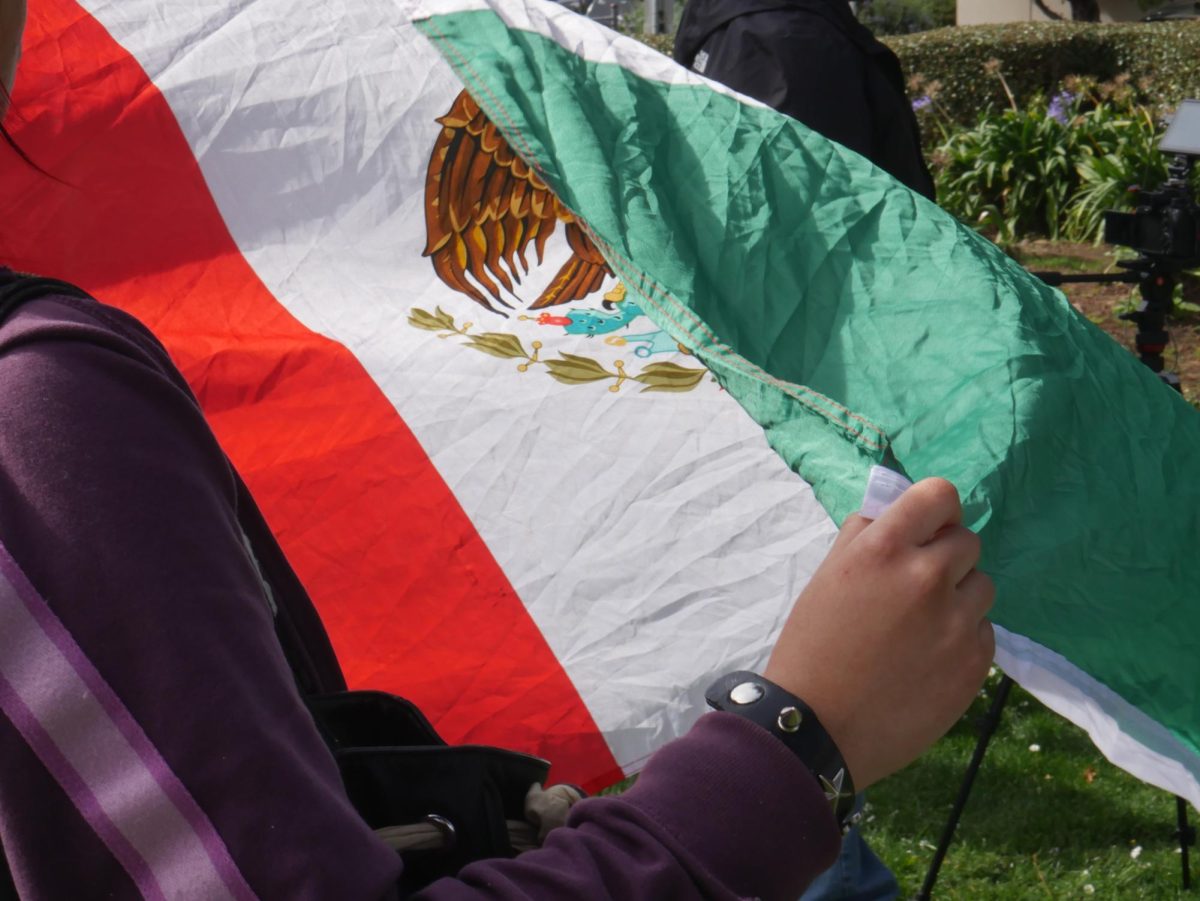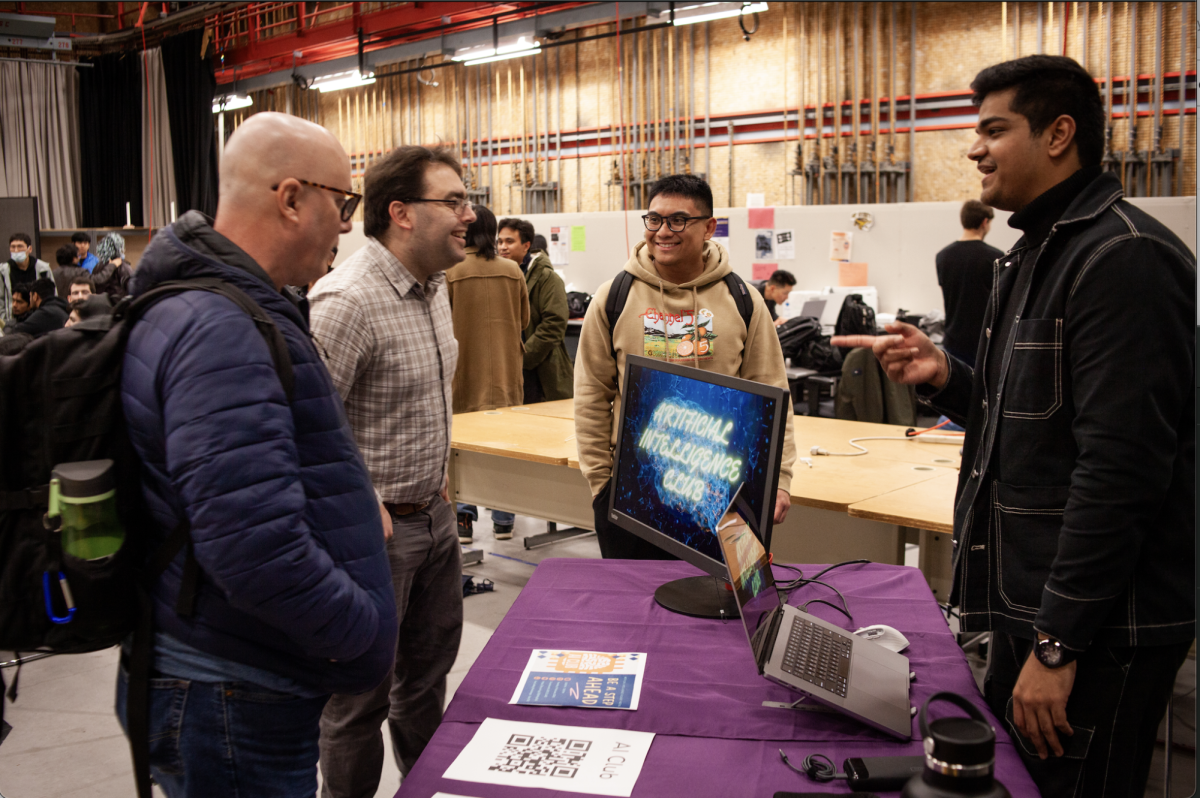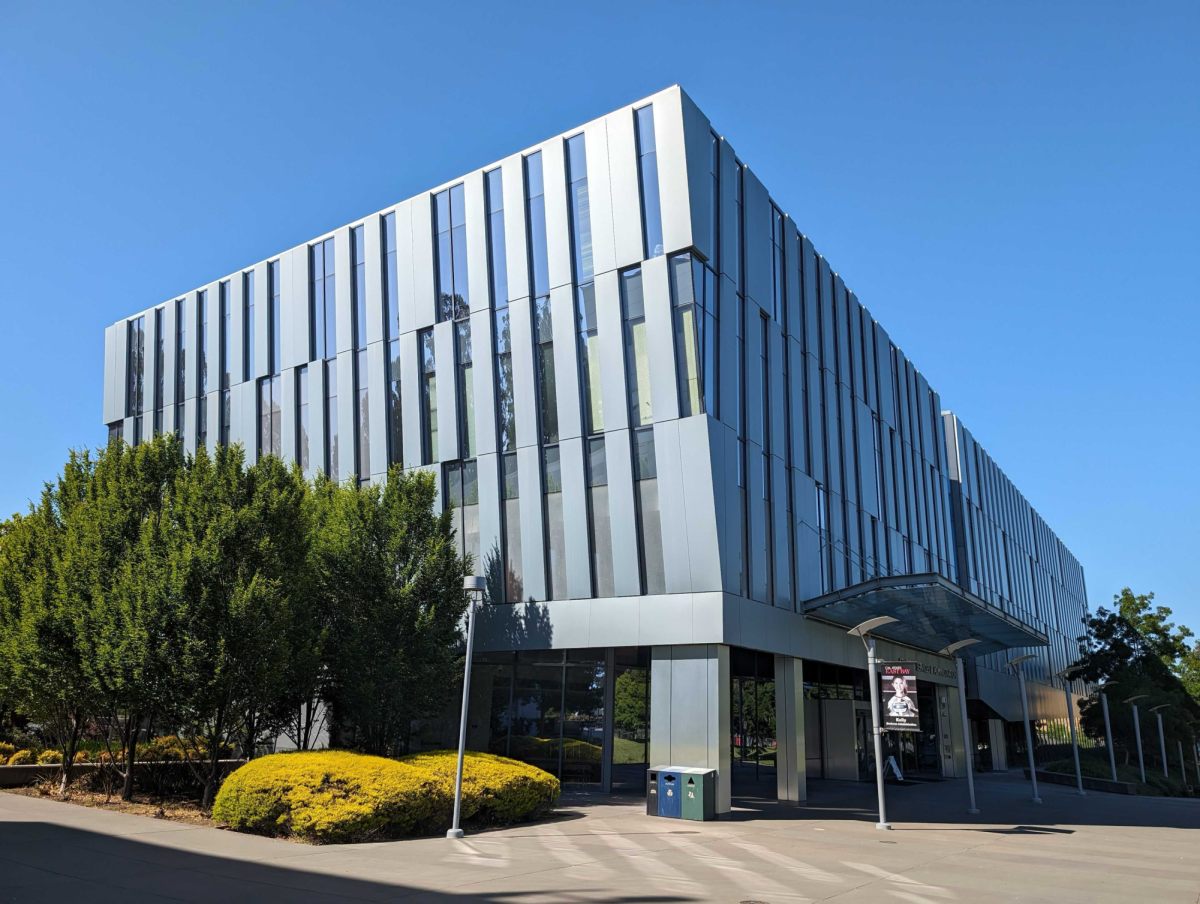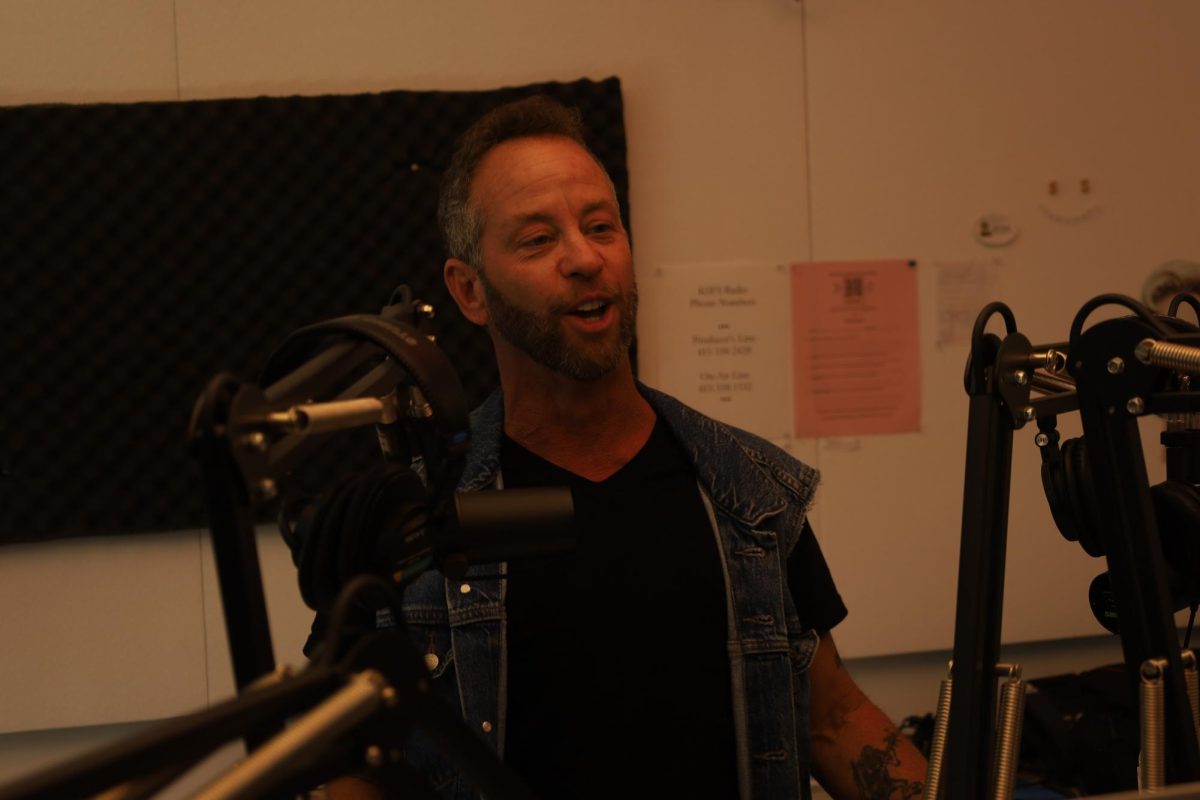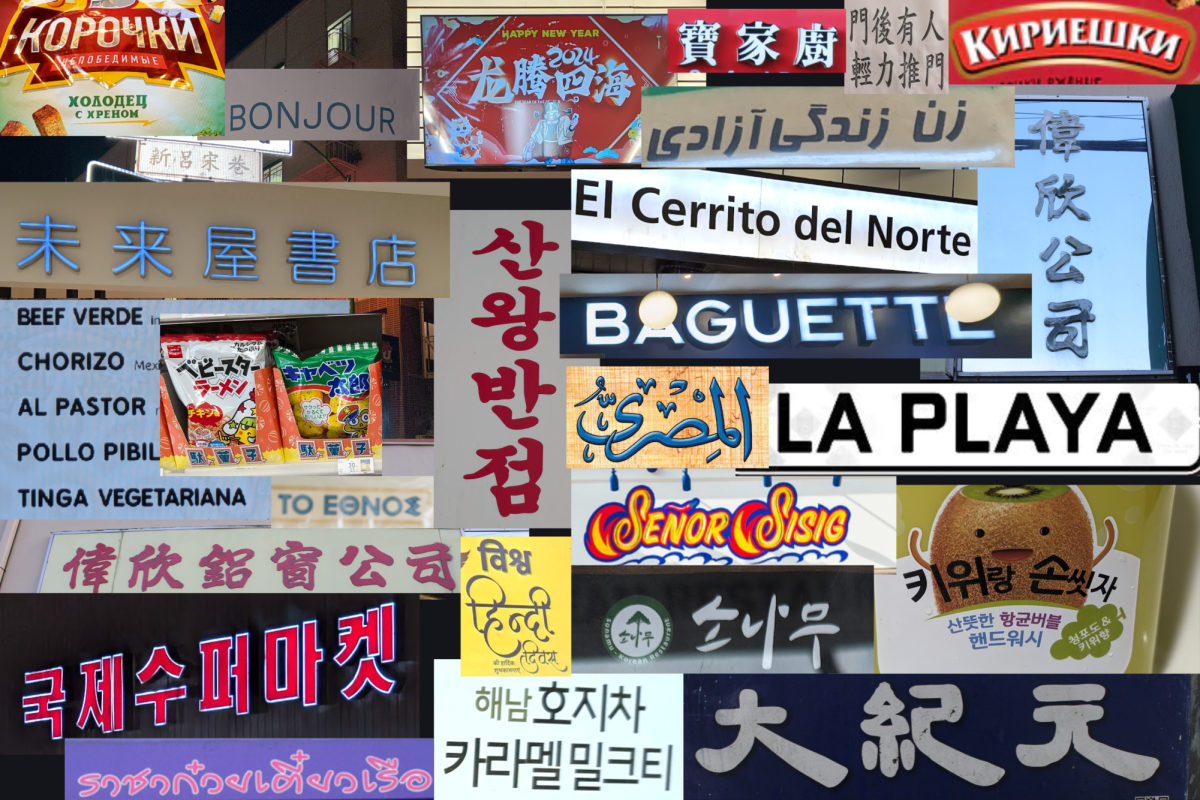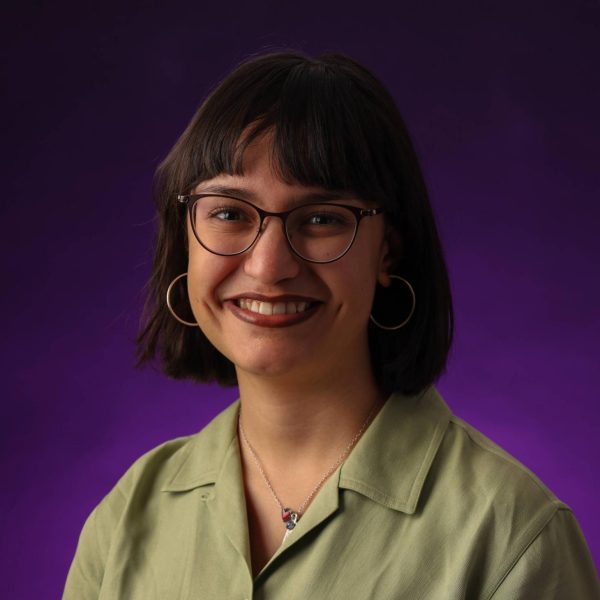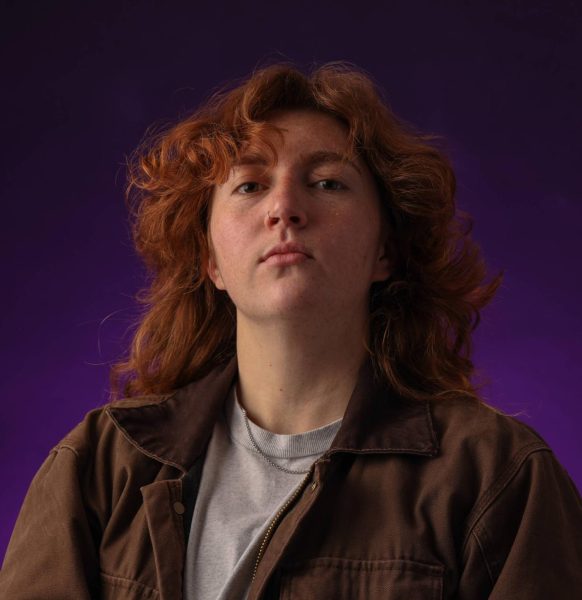Lee esto en español.
Reggaeton and cumbia music filled the air at the corner of 19th and Holloway Avenues as students, wrapped in Latin American flags, held signs in protest of mass deportations.
Brown Issues’ new chapter at San Francisco State University launched their first event today to show solidarity with undocumented communities. The event was originally planned for Feb. 13 but was postponed due to rain.
The protests come after President Donald J. Trump’s recent announcement of a mass deportation plan. Since his inauguration on Jan. 20, Trump has already issued several policies targeting migrants, like the possibility of eliminating birthright citizenship, the expansion of migrant detention centers and a complete rebuild of the U.S. Immigration and Customs Enforcement.
One of the estimated 50 people in attendance, Desiree Prado, spoke about the parallels between her great-grandfather’s experience in the Bracero Program in the 1940s to Trump’s mass deportation plan.
“The U.S. decided that they needed them then,” said Prado. “They were valuable then.”
Prado described how the U.S. forced Mexican men within the program to soak their bodies in gasoline baths and undergo invasive medical examinations, and when the U.S. decided that they no longer needed Mexican workers, the U.S. government initiated Operation Wetback.
“They carried out the largest mass deportation in the United States history, showing us then and reminding us now that immigrants are not disposable,” said Prado. “They deserve to be here because they are human beings, not dollar signs. Immigrants deserve to be here, period.”
While mass deportations are already taking place across the nation, rumors of ICE presence circulate in San Francisco.
Brown Issues continued their rally by marching and chanting near the Cesar Chavez Student Center. Onlookers passing through the Quad recorded the protestors with their phones while students in the Business Building looked out their classroom windows.
“No hate, no fear, immigrants are welcome here,” was chanted at the protest. Other chants were recited in Spanish.
The SFSU chapter of Brown Issues was started by a group of students who had previously worked on the community project Nuestras Calles together in December 2024 to address the impact of policing on Latine communities.
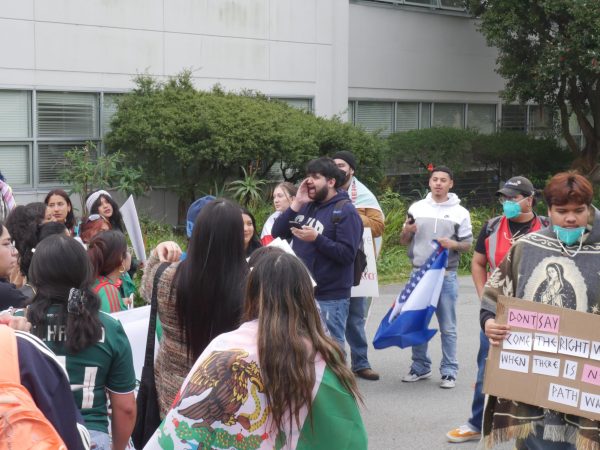
SFSU is a Hispanic-serving institution, with over 37.4% of the student body identifying as Latine in Fall 2024.
The group says that although their leadership is comprised of Latine students, they strive to work with other communities on campus.
“It’s not really just about us, it’s about all of us as a collective together, working towards our same goal or similar goal,” said Lizbeth Setina, one of the organization’s leaders.
Brian Yan, a student organizer, said the attack on immigrants is connected to the attacks on other ethnic groups.
“The same tactics, same weapons, same technology are used in the funding of genocides of Palestinian people,” said Yan. “When they attack Latin Americans, if we don’t stop that, they’ll come for everyone next.”
Brandy Arenal, a second-year ethnic studies major, spoke of the importance of uniting all cultures and communities at SFSU.
“I think the systems of power try to divide us all the time and it’s so easy to fall into those traps. What we can do as part of our resilience, as part of decolonizing, is coming together as a community,” said Arenal. “Understanding the roles and privileges that we have within our diverse circumstances and coming together despite all of that.”
Getsemani Ibarra Leon, a first-year Latino/Latina studies major, said she was surprised at encountering Latine students who were vocally addressing their issues with the state of the country.
“It made me feel really good. It almost made me cry just to see everybody here,” said Ibarra Leon. “I’m like, wow, it feels like I’m back home in Richmond. It’s a very big Brown community and it’s very culture shock being here. So it was really nice seeing all of our people together.”
Leslie Torres, a third-year marketing major, said she was in attendance in honor of her family.
“My parents are immigrants, so I want to be here to support them in spirit as well,” Torres said. “They don’t know I’m here, but the feeling for myself, and to be able to have other people that also have that same feeling.”
Emelia Leon, a lecturer in the College of Ethnic Studies, said she felt inspired as an SFSU alum and a graduate of Raza studies, which is now referred to as Latino/Latina studies.
“I feel like this generation has experienced so much at such a young, tender age, and they are standing up in a way that I feel like my generation hoped to stand up like they are right now,” said Leon. “Unfortunately, ethnic studies, our communities — it’s always under attack because it raises critical thinking and folks get to the truth on their own, and that’s the biggest threat to the oppressor.”





